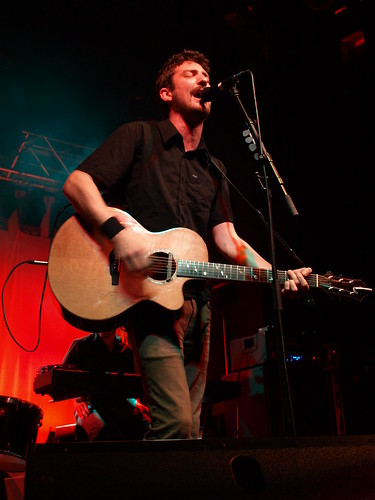
On
April 8th 2010,
Born To Be Wide is bringing you an entire day of seminars and band showcases, titled
Wide Days.
Born To Be Wide is an Edinburgh-based music industry mixer that runs on the first Thursday of the month at The Voodoo Rooms, where musicians, promoters, press, and anyone involved in the music scene can get together, swap CDs and socialise. The night is hosted by Olaf Furniss and
New Found Sound Promotions, is supported by the Musicians' Union and the Youth Music Initiative, and has been running since 2004.
Since April 2008 BTBW has also featured seminars for those interested, including Music Management and How To Get On The Radio. But the 8th of April sees an entire day of seminars. The programme is as follows:
Seminars (Times:
09.30 - 18.00)
How To Get Onto a Festival Bill
Dave Corbett [T In The Park, The Edge], Helen Chalmers [Wickerman], Rob Hicks [Rockness, Belladrum], Stuart Nisbet [Hogmanay Edinburgh], P.C Rae [Slottsfjell, Norway]
I Am The Law – Essential Legal Advice
Dawn Barraclough, Murray Buchanan, Claire Thompson, Steven Fisher
 What Next? Preparing For The Future
What Next? Preparing For The Future
Scott Cohen [The Orchard], Ruth Daniel [Unconvention], Andrew Dubber [Birmingham University], Will Page [Chief Economist, PRS]
Speak To The Management
Rab Andrew [Texas, Primal Scream], Mark Bailey [Woodenbox], Keith Harris [Stevie Wonder], Bruce Findlay [Aberfeldy, The Silencers, Simple Minds]. Moderator, Vic Galloway [BBC Scotland]
Keynote Q&A
Gavin Bain (pictured left), author of
California Schemin'
an account of how two young Dundonians convinced the London record industry that they were rappers from California.
Following a double booking at their usual venue, The Voodoo Rooms, the Wide Days seminars will now take place a
Shanghai Club on George Street. The evening programme, however, will take place at several live music venues:
Showcases (Times: 19.00 – 23.00)
 19.00 - Cabaret Voltaire Speakeasy
Carrie Mac
19.00 - Cabaret Voltaire Speakeasy
Carrie Mac + Holden
20.30 - Sneaky Pete’s
Panda Su (pictured right) + Aaron Wright
22.00 - Electric Circus
Hopeless Heroic +
Found +
Meursault
+ DJ sets by distinguished guests
Seminar Tickets are
£30 (or £20 if you’re a member of the Musicians Union) and available at
www.eventzi.com/borntobewide. The live performances however, are free! To obtain tickets for one of the shows, contact the band you’d like to see via Myspace.
Myke Hall






